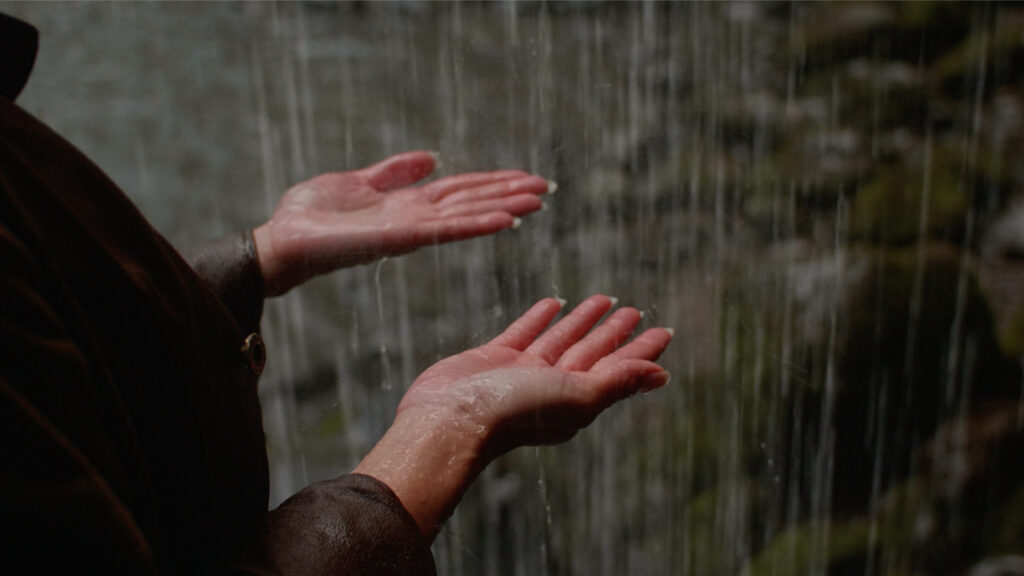by Michael N. McGregor
A few weeks ago, I received an email from one of my old colleagues at Portland State University telling me a former student, Sky Hopinka, had been awarded a 2022 MacArthur “Genius Grant.” When I looked him up, I was pleased to see that his art is centered in the experience of indigenous people, including some from the Northwest.
Hopinka not only earned his BA from PSU but was born in Ferndale, Washington. And while his work in film, photography, and poetry is wide-ranging, several of his videos focus on Northwest indigenous life.
His first feature-length film, “maɬni – towards the ocean, towards the shore” (2020), for example, is set entirely in the Northwest world of its two indigenous protagonists.

Here’s a brief description from a New York Times review by Beatrice Loayza:
The documentary, anchored in the Chinookan origin-of-death myth (a dialogue between a wolf and a coyote about the afterlife), separately follows two young parents — pregnant Sahme and Jordan Mercier, both friends of Hopinka’s — as they grapple with questions of legacy and identity.
Subtitles switch between English and Chinook jargon, yet the oral component (including Hopinka’s narration) occasionally fades into the backdrop with sound design that amplifies the crackling of a fire, the bubbling and thrashing of the ocean and waterfalls.
The natural world, with its never-ending tides and its cycles of life and death, provides a framework for the preservation of Indigenous culture, resilient despite its new forms and manifestations.
In reviewer Glenn Heath Jr. ‘s good (free) review for the Film Stage website, he calls “maɬni ” an “elegiac and at times mesmerizing feature debut.” His review gives a good description of the film’s content, including the ways Hopinka challenges traditional white use of ethnographic documentary to “exoticize non-Western communities.”
You can watch the entire film at The Criterion Collection, which offers a free 14-day trial.
For a shorter look at Hopinka’s vision of the Northwest, try “Anti-Objects, or Space Without Path or Boundary,” a 13-minute video available for free on his website.
Here’s how he describes this shorter work: “Images and representations of two structures in the Portland Metropolitan Area that have direct and complicated connections to the Chinookan people who inhabit(ed) the land are woven with audio tapes of one of the last speakers of chinuk wawa, the Chinookan creole, chinuk wawa.”
According to the bio on his website, Hopinka is from the Ho-Chunk Nation/Pechanga Band of Luiseño Indians, but during his days in Portland he both studied and taught chinuk wawa (Chinook jargon).
Hopinka’s work has appeared at numerous festivals, including Sundance, the Toronto International Film Festival, and the New York Film Festival. It has also been part of the 2017 Whitney Biennial, the 2018 FRONT Triennial, and Prospect.5 in 2021. It will be exciting to see what his MacArthur Fellowship allows him to do next.
In a conversation with Theo Anthony published in Filmmaker Magazine, he said this about his work:
“[E]mpathy is something I think a lot about. It’s also the relationship, as Adam Khalil put it, between knowledge and information around indigenous cultures. What does it mean to know something, and what does it mean to have facts about something or a culture or a community? And as I try to not explain things, I’m hoping that through context or the things that are nearby, an audience will be able to understand how I feel about them, or place themselves in a certain empathetic space where they may not know what’s going on, but they know how to feel about it.”
More links:
Interviews with Sky Hopinka and links to more reviews of his works

Leave a Reply